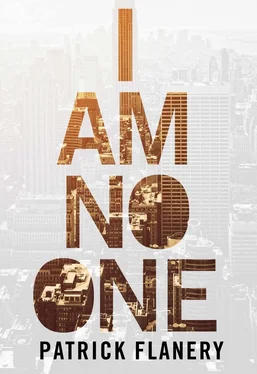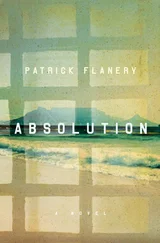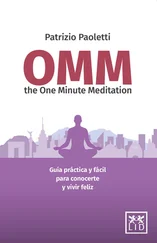One evening in April last year, although it could already have been May, Fadia sent me a text message asking if she could come over, and surprised as I was by the communication I immediately wrote back and said yes, of course, she was very welcome, I had no other plans, would she like dinner? No, she had a dinner engagement already, but might she drop by later, for a drink? Of course, I replied, that would be lovely. And yet the vulnerability of my assertion, or the way in which asserting the loveliness of seeing a student I had slept with not so long ago created a sense of vulnerability in my own psyche, of opening myself to the feminine, unsettled the ground beneath me once again, so that I had, as seemed to happen more often the longer I remained in Britain, the sensation of standing on two opposing plates, one moving east, the other west, my balance becoming ever more precarious the longer I tried to remain established on both.
Now, of course, I understand why she went silent, and I was beginning to think of Fadia’s sudden return to my life after that absence of four weeks as I looked out on the frost-covered trees in the land between my house and my neighbors, in the clear morning light of the last Saturday in November a few weeks ago, heat chucking through the vents and warming my feet on the linoleum floor of my kitchen, knowing I would have to take my mother to lunch at the Beekman Arms. This was exactly why I had wanted to come home to America, to enjoy these casual weekends in the midst of family, to be able to dart from my daughter’s to my mother’s, to see my ex-wife on a whim as if I thought for a moment she might find it in her power to take me back after my years of geographic and romantic straying. I imagined how much ground would need to be covered, the confessions I would have to make, revelations of my intimacy with Bethan and Fadia, the flings with half a dozen other women, and I had come through it all without disease (which I had feared more, for some reason, than I ever did in America), although not without complications of perhaps greater order than the species of infection that might be trusted to respond to antibiotics.
From the moment my mother got in the car I knew something was wrong. She fidgeted with her purse and confessed she had forgotten to make a reservation. We would instead be going to the Italian restaurant at the Culinary Institute of America, which was half an hour’s drive away and not what I felt like.
‘Is everything okay?’ I asked, hearing my own impatience as she continued to scramble in her purse.
‘Mmhm, yes, yes, yes.’
‘Did you lose something?’
‘No, I’m just organizing,’ she sang, in that tone I had come to associate with an array of artificially bright moods that could crash into darkness without warning.
‘It’s distracting, Mom.’
She huffed and closed her purse. We drove in silence, or rather I drove and neither of us said anything more until we arrived at the CIA campus. At the restaurant she complained that our table in the window, with its views of the grounds, was far too cold, there was a draft. The whole place was done up in an ersatz Tuscan style that made me queasy. My mother ordered the eggplant parmigiana to start, while I chose the octopus salad and we both decided on the fish of the day with pistachio couscous (not very authentic, I thought, but I kept that to myself). As we waited for the first course my mother looked around in her distracted way.
‘Tell me something. How’s that class you’re teaching? The film one.’
‘What do you want me to tell you?’
‘I don’t know. You’re so secretive, Jeremy. You never tell me anything. Tell me about the students.’
‘It attracts a mixed group. Conspiracy theorists and philosophers and nursery anarchists with barbed-wire tattoos, and then a few serious-minded cinema philosophy boys who want to talk endlessly about Deleuze and movement-image and I know nothing about any of that really. I’m more interested in the films as documents of particular social moods.’
‘I don’t understand what any of that means.’
‘Of course you do.’
‘But you talk so fast , I wish you’d explain it better. I don’t know how your students follow any of it.’
‘I’ll explain it another time.’
‘You always say that.’
‘Is there something wrong?’
‘It’s nothing. You’ll just get upset.’
‘Upset about what?’
‘What I’m about to say.’
I had a premonition that whatever she was going to reveal had something to do with the events of the previous week, of that Saturday a week earlier when I sat in a café on MacDougal Street waiting for a student who never appeared because I had, or had not — someone else perhaps had — sent her an email rescheduling the meeting. Whatever my mother was about to say had to do with the boxes delivered to my apartment. It had to do with Fadia and her brother Saif and Stephen Jahn, and ultimately, I felt certain, in a single cold blast of panic, it had to do with Michael Ramsey.
‘I got a phone call.’
‘From whom?’
‘He didn’t say.’
‘But it was a man?’
‘It certainly sounded like a man. Most of the time I know if it’s a man or a woman, Jeremy, however demented you think I am. I haven’t lost my marbles so as I can’t tell a man’s voice from a woman’s.’
‘Don’t talk so loud.’
‘Nobody can hear!’
‘Just tell me what he said.’
‘He said I should know that you were not a good person, that you were a very bad man—’ here she began to get choked up, ‘—that you had done terrible things, that you were anti-American, that you were a friend of the enemy, that you believed in terrorism and had financed jihadis, that you were working against the interests of this country, all kinds of things, I mean, really awful, it was so upsetting, and then he said — I don’t even know how to put it — he said you had been intimate with a young Muslim woman at Oxford who was linked to extremist organizations. I know none of this can possibly be true, but I didn’t know what to say, and I started shouting at the man on the phone telling him he was lying and then he said if I wanted to open myself to a life of terror then that was my choice, but he advised I never see or speak to you again, and I hung up the phone. It was awful ,’ she said, and by that point a mess of tears had misted across her cheeks. ‘It’s not true, is it?’
As she spoke I felt my skin go clammy, my stomach lurch, my legs rush with a feeling of vertigo. In falling, I thought, my exposure would be complete. Exposure as what? As a man who cannot control his desires? As a man who has accidentally allied himself with terror? As a man on the wrong side of history? As a man less than the man he — I—wish to be. My face was betraying me: my mother’s expression registered what she saw before her, my shame and culpability, my panic, a sense of terror opening before me.
‘It’s not true,’ she said again, as if trying to convince us both.
‘Of course not. Probably just a disgruntled student. There’s absolutely no truth to it. Zero.’ The words came easily but I struggled to master my tone. ‘Did he say anything else?’
‘I told you, I hung up the phone. I didn’t want to hear any more.’
‘But before that, he didn’t say anything besides what you’ve just told me?’
She shook her head. ‘Not that I can think. Did you know a young Muslim woman at Oxford? I thought I remembered you had an Egyptian doctoral student, didn’t you mention her? Fawzia?’
‘Fadia.’
‘That’s right. I thought you’d spoken about her. But she was just your student , and I know you would never do anything with a student , would you, Jeremy?’
Читать дальше












